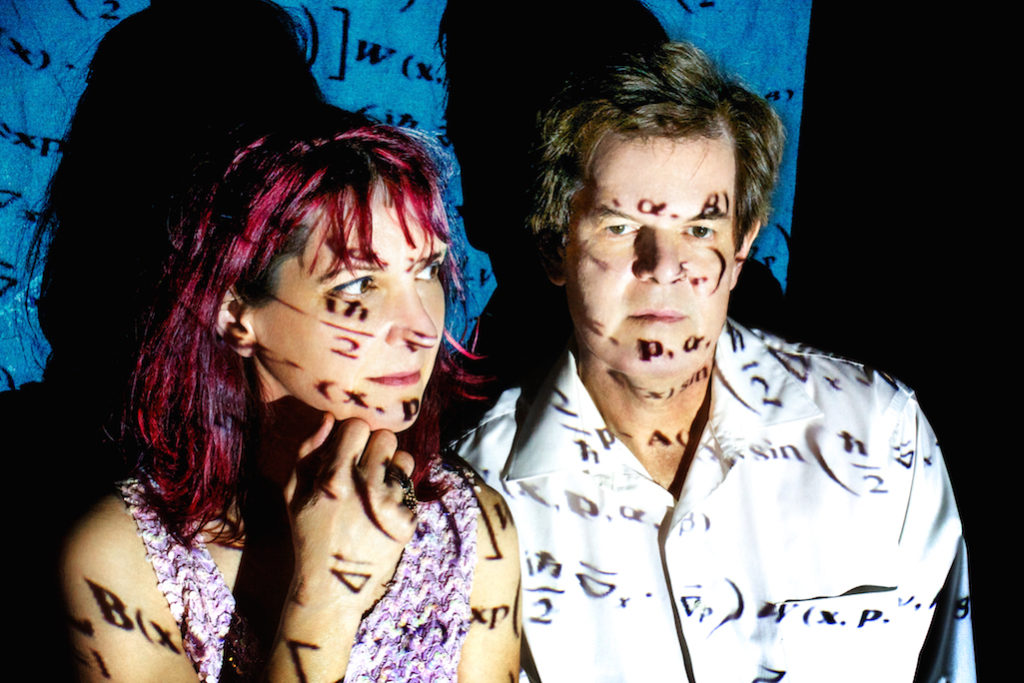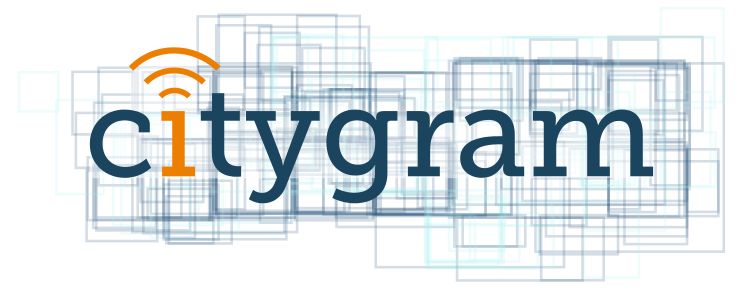Common Ground: Art, Data and Ecology at NYS Field Stations is an inquiry into how the fields of art and science can collaborate, especially using environmental data and engaging in transdisciplinary research. Harvestworks and the New York City Urban Field Station will release a report early next year on the potential for such collaborations in New York State. Join us for a briefing on what we’ve learned, and hear about the Urban Field Station’s artist-in-residency program based in Fort Totten Park in Queens.
A panel discussion will feature four artists – Ben Neill & Mimi Goese, Kristin Lucas and Tae Hong Park—who are collaborating with scientific researchers and using data drawn from the natural world as part of their creative process. We will explore their recent projects and topics including:
What makes collaboration between artists and scientists work? How can trust be fostered and expectations be made clear? How does artistic and scientific research relate?
How does data become art? Can we speak of data as a creative medium? What are the obligations of the artist to be “true” to the data?
In what ways can art shift individual perceptions of the environment, inform the public, encourage civic engagement, expand or change local management, or impact policy? Or enhance the work of collaboration between research and environmental organizations? Can these, or should these, be artistic goals?
Friday Dec. 1, 2017 @ 7 pm
FREE
Harvestworks
596 Broadway Suite 602 New York NY 10012
Phone: 212-431-1130 Subway: F/M/D/B Broadway/Lafayette, R to Prince, #6 to Bleecker
ARTISTS BIOS

Ben Neill and Mimi Goese
Ben Neill and Mimi Goese will present excerpts from Fathom; Hudson River Data as Music , a new collaboration with the Beacon Institute for Rivers and Estuaries (BIRE) of Clarkson University. The piece is commissioned with the help of a New Music USA grant awarded in Summer 2016. BIRE is a not-for-profit environmental research organization working to expand understanding of rivers and estuaries for the benefit of public health, ecosystems, New York’s economy and quality of life. One of BIRE’s most important projects is monitoring of environmental data in the Hudson River through their REON system, which streams from multiple sensor arrays. Neill was approached in 2016 by BIRE to create a musical piece based on the scientific data, and asked his collaborator Mimi Goese to work with him on it. The duo is scheduled to premiere Fathom at the Towne Crier Café in Beacon, New York on November 17, 2016 as part of the Science Cafe series.
The musical material in Fathom is directly derived from the REON data streams using a variety of computer software. The patterns can either generate sounds directly or be translated into conventional musical notation for the performers. During the performance real time video animations of the patterns will be projected using a video performance program. As the work unfolds, the visual graphs and data will be processed and manipulated by the performers, literally turning the science into art in both the sonic and visual realms.

Kristin Lucas with programmer Thomas Martinez
Kristin Lucas explores the contingencies, issues, and poetics of digital technologies through conceptual, performative, social, and collaborative frameworks. She reinvents the familiar in uncanny circuitous works that lie somewhere between reality and “reality”. Her current project entitled “Dance with flARmingos” reimagines kinship between humans and flamingos from the ethical distance of a Mixed Reality experience and involves partnership with international flamingo researchers. The project is one of five projects selected out of hundreds for Engadget’s 2017 Alternative Realities grant.
Lucas lives between Queens and Austin where she serves as an assistant professor of Studio Art for University of Texas at Austin. She is the recent recipient of residencies at Oregon Story Board, Harvestworks Digital Media Arts Center, Pioneer Works, Yafo Creative/Print Screen Festival, and the Bau Institute. She earned a BFA from The Cooper Union School of Art and an MFA in Art Practice from Stanford University.
 Tae Hong Park is a composer, bassist, and music technologist. He received his Bachelor of Engineering degree in Electronics from Korea University in 1994 and has worked in the area of digital communication systems and digital musical keyboards at the LG Central Research Laboratory in Seoul, Korea from 1994 to 1998. He also holds degrees from Dartmouth College (M.A. in Electro-Acoustic Music) and Princeton University (M.F.A and Ph.D. in composition). His current interests are primarily in composition of electro-acoustic and acoustic music, technical research in multi-dimensional aspects of timbre, pattern recognition, signal processing, automatic musical instrument classification, and computer-aided music analysis.
Tae Hong Park is a composer, bassist, and music technologist. He received his Bachelor of Engineering degree in Electronics from Korea University in 1994 and has worked in the area of digital communication systems and digital musical keyboards at the LG Central Research Laboratory in Seoul, Korea from 1994 to 1998. He also holds degrees from Dartmouth College (M.A. in Electro-Acoustic Music) and Princeton University (M.F.A and Ph.D. in composition). His current interests are primarily in composition of electro-acoustic and acoustic music, technical research in multi-dimensional aspects of timbre, pattern recognition, signal processing, automatic musical instrument classification, and computer-aided music analysis.
His project, Citygram is a large-scale project that began in 2011. Citygram aims to deliver a real-time visualization/mapping system focusing on non-ocular energies through scale-accurate, non-intrusive, and data-driven interactive digital maps. The first iteration, Citygram One, focuses on exploring spatio-acoustic energies to reveal meaningful information including spatial loudness, traffic patterns, noise pollution, and emotion/mood through audio signal processing and machine learning techniques.
The Art, Data and Ecology Project Team
Lindsay K. Campbell is a research social scientist with the USDA Forest Service Northern Research Station, based at the New York City Urban Field Station (www.nrs.fs.fed.us/nyc). Her current research explores the dynamics of urban environmental governance, natural resource stewardship, and sustainability policymaking. She is the author of City of Forests, City of Farms: Sustainability Planning for New York City’s Nature, published by Cornell University Press. In addition to her research, Lindsay helps direct the Science of the Living City program for the Urban Field Station, including fellows, seminars, and artists in residence. Dr. Campbell holds a BA in Public Policy from Princeton University, a Masters in City Planning from MIT, and a PhD in Geography from Rutgers University.
Bram Gunther is the co-Director of the New York City Urban Field Station, which is the science hub of Forestry, Horticulture, and Natural Resources of the New York City Parks Department. He was previously Chief of Forestry, Horticulture, and Natural Resources. He is also the Co-Founder and Senior Advisor of the Natural Areas Conservancy, a public/private partnership established to unify the City’s efforts to conserve, restore, and protect its forests, wetlands, and grasslands. He joined the New York City Parks Department in 1991 as an Urban Park Ranger. Three years later, he became the Citywide Director of the Rangers. He has a bachelor’s degree in American literature from State University of New York at Purchase and a master’s degree in environmental management from the Yale School of Forestry & Environmental Studies.
Kevin Duggan specializes in planning, fundraising and organizational development for nonprofit cultural organizations, particularly those making innovative use of media and technology. He has worked with a wide variety of organizations including Tribeca Film Institute, Independent Television Service, Anthology Film Archives, Harvestworks, Eyebeam, The Jewish Museum, School of Visual Arts, Games for Change, African Film Festival, the Atlantic Foundation, and many others. Previously, Kevin served as Senior Advancement Officer at the Experimental Media and Performing Arts Center (EMPAC) a state-of-the-art production and performance facility on the campus of Rensselaer Polytechnic Institute. He was also Senior Program Officer for Services, Technology at the New York Foundation for the Arts, where he was responsible for NYFA’s arts and technology programs. A visual artist, his work has been shown at Wave Hill, the Kentler International Drawing Space, New York Public Library, Weman Art Museum and elsewhere. He is a member of the Brooklyn Botanic Garden Florilegium Society.
Moderated by Harvestworks Executive Director Carol Parkinson.
This project was supported in part by the Regional Economic Development Council for New York City and the New York State Council on the Arts with the support of Governor Andrew Cuomo and the New York State Legislature.





